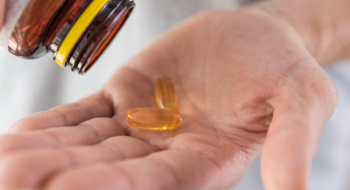The days are shorter, and the skies are gloomier: Now is the time when some people feel SAD.
That’s S-A-D, as in seasonal affective disorder, a form of depression that often arrives with Old Man Winter. It’s believed to be tied to our body’s response to the amount of sunlight we experience and our circadian rhythms – the natural processes that occur within the body over the course of a day.
Those rhythms are driven by the hormones serotonin (which energizes us in the morning) and melatonin (which puts us to sleep at night). The production of both hormones is influenced by the amount of light we experience during the day.
“We all know that our circadian rhythms change this time of year,” says Dr. Jill Aiken, a pediatrician with Tidelands Health Pediatrics in Myrtle Beach. “For many people, that can lead to a case of the winter blues, but for some children and adults the symptoms are more severe.”
Children, teens affected
While SAD is most often diagnosed in adults, it can affect teenagers and younger children as well. So if your otherwise happy child seems moodier than usual when winter sets in or is sleeping much more than normal, he or she could be struggling with SAD.
As with adults, kids feeling SAD may reach for comfort foods more during the fall or winter than the rest of the year. They also may have trouble concentrating, withdraw from socializing with friends or have more trouble than normal getting up for school in the morning.
A key difference between SAD and other forms of depression is that SAD is seasonal and returns for only a few months at the same time every year. Unlike the mood shift many people experience when the days get shorter, SAD can seriously hinder a person’s ability to enjoy life and perform normal day-to-day activities.
“Among children, seasonal affective disorder can lead to declines in performance at school and a loss of self-esteem,” Dr. Aiken says. “If not diagnosed properly, it can seem like a child has developed a poor attitude when instead they’re struggling with seasonal depression.”
Treatment
Treatment can include increased natural light exposure, counseling, medication and phototherapy, which is when a patient sits in front of a special light-emitting box or panel for a specified period of time.
“It’s important to remember that a loss of energy or changes in sleeping or eating patterns may be caused by conditions other than SAD,” Dr. Aiken says. “That’s one of the reasons why it’s important to consult with your child’s pediatrician or other qualified care provider if you start noticing concerning signs with your child.
“We can help you and your child figure out what’s going on and pursue the appropriate course of treatment.”
Escaping the doldrums
Sometimes, children simply need a boost or change in routine to escape the winter doldrums.
Here are a few ideas:
- Encourage them to go outside: Even in the gloomiest depths of winter, daylight and exercise can help improve our mood and energy levels. So consider go on regular walks with your child in the morning – you’ll both benefit.
- Eat healthy: Encourage your child to eat a healthy diet including fruits and vegetables, healthy fats and lean proteins. Eating well can translate into a better mood and increase his or her energy levels.
- Talk it out: Talk to your child about how they’re feeling, which can help them overcome negative emotions and moodiness and focus on more positive thoughts and behaviors. Try to be supportive – rather than judgmental – in your approach.
- Make time for a full night’s sleep: Good sleep hygiene is critically important to both physical and mental health. Encourage your child to get a full night’s sleep and avoid bright lights, including those in cell phones and other digital devices, before bed. The blue light emitted by many of those devices can make it more difficult to fall asleep and wake in the morning.
“Read a book before bed,” Dr. Aiken says. “Just don’t read it off your tablet.”

Dr. Jill Aiken
Pediatrician, Tidelands Health Pediatrics
Bio
Dr. Jill Aiken, a board-certified pediatrician, practices at Tidelands Health Pediatrics in Myrtle Beach.
Learn MoreMedical Education
Education
Wofford College
Medical University of South Carolina
Residency
Medical University of South Carolina, Pediatrics
Meet the Expert
Dr. Jill Aiken
Dr. Jill Aiken, a board-certified pediatrician, practices at Tidelands Health Pediatrics in Myrtle Beach.





